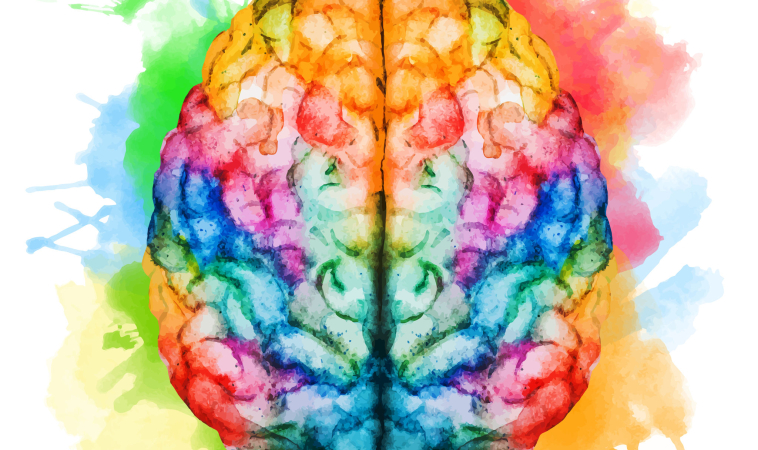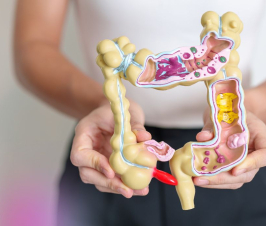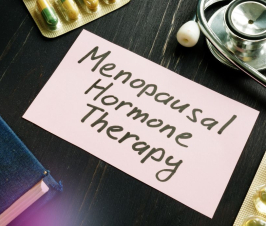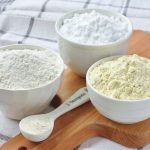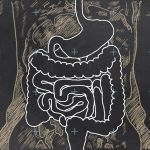It’s one of those days when your brain just won’t work, you find yourself wishing for a pill or magical drink to alleviate the feeling, to get things back on track. We all know that feeling, when you just can’t get any work done, can’t focus, can’t remember anything that your boss has said to you, or anything that you’ve read, and your upcoming deadline does nothing to motivate you. For many of us, this is a daily occurrence. The good news is that there is something you can take – phosphatidylserine.
Naturally found in the cell membrane of every cell, phosphatidylserine is most concentrated in metabolically active organs like your brain, heart, and muscle.(1)
Originally animal-derived, phosphatidylserine supplements are now exclusively soy-derived due to the risk of Mad Cow Disease.(2) Although soy phosphatidylserine has been less researched and has shown some conflicting results, recent research is promising.
Phosphatidylserine for Children
For children, phosphatidylserine is especially useful for symptoms of Attention-Deficit Hyperactivity Disorder.(3) In a recent randomized, double-blind study of thirty-six children, aged 4-14 years of age, results show that 200mg of phosphatidylserine for two months significantly improved all categories of ADHD symptoms, including inattention, impulsivity and short-term auditory memory.(1)
Phosphatidylserine for Adults
Phosphatidylserine has been found to increase mental performance in college students writing exams.(1) Supplementation helps increase glucose metabolism in the brain,(4) providing the brain with the necessary fuel it needs to function properly.
Phosphatidylserine helps increase resistance to stress by significantly counteracting stress induced activation of the hypothalamus-pituitary-adrenal (HPA) axis, blunting increases in your stress hormone, cortisol.(1,3,4,5) Individuals treated for 42 days with 200mg of soy-based phosphatidylserine showed a more relaxed state before and after exposure to mental stress.(5)
Phosphatidylserine for Older Adults
Phosphatidylserine has been most recognized for its ability to improve cognitive function in the elderly. A 12-week pilot study with 30 elderly volunteers found that soy-lecithin derived phosphatidylserine helped improve memory.(4) Although the exact mechanism of action is unknown, we know that phosphatidylserine acts on a part of the brain called the Prefrontal Cortex (PFC).1 The PFC functions at a suboptimal level when it is exposed to even minor stressors.(1) To ensure optimal PFC function, phosphatidylserine alters the release and reuptake of neurotransmitters such as dopamine,(1,3) serotonin,(1) and acetylcholine.(1) Optimal PFC functioning is required for attention to tasks1, focus1 and proper motor responses1, important in individuals with ADHD and the aging population. In another double-blind, placebo controlled clinical trial, a large group of elderly subjects with memory complaints were treated with 300mg of PS along with DHA.(5) Research showed improved immediate recall.(5)
Phosphatidylserine also has the ability to delay the aging process by reducing the production of reactive oxygen species, and therefore oxidative stress.(4) This also protects the brain from chronic diseases such as Alzheimer’s. In a study, chronic phosphatidylserine administration recovered dendritic cell loss in the hippocampus of aged rats.(3) As a result, phosphatidylserine might have clinical applications in depression where dendritic spines are lost.(3) The dendritic spine is a part of the dendritic cell that helps transmit electrical signals throughout the brain cell.
Phosphatidylserine for Athletes
For athletes, phosphatidylserine just might be the dream supplement. Phosphatidylserine improves recovery, and decreases the potential negative effects of overtraining, such as decreased performance, injury, depressed immunity as well as depression.(5) In one particular study, 10 healthy males participated in three exercise sessions over 21 days, one exercise session before supplementation or placebo and two exercise sessions after.(5) Blood samples were analyzed for testosterone, cortisol and growth hormone.(5) Results show that soy-derived phosphatidylserine significantly reduced plasma cortisol levels, but did not change testosterone or growth hormone levels.(5) By acting on the hypothalamic-pituitary-adrenal (HPA) axis, phosphatidylserine promotes a hormonal balance that prevents the physiological deterioration associated with overtraining.(5)
Earlier studies that did not show a phosphatidylserine-induced decrease in cortisol used different doses as well as less intense levels of exercise. A review of multiple studies show that higher dosages are needed for an effect on cortisol, at least 800mg whereas lower doses such as 600mg and 300mg can help decrease muscle damage, lowering creatine kinase levels 24 hours after a 90 minute run.(5) Phosphatidylserine has the greatest effect when athletes perform at an exhaustive level.(5) By promoting cognitive abilities and promoting recovery from exhaustive exercise, phosphatidylserine is especially beneficial for athletes participating in endurance and strategic based sports such as cycling, endurance running and weight training.(5)
Increasing Phosphatidylserine Levels
A diet abundant in omega-3 rich foods is crucial for phosphatidylserine synthesis:
- avocados
- nuts (especially walnuts)
- seeds (hemp, flax, chia, pumpkin)
- fish.
Docosahexaenoic acid (DHA), an omega-3 fatty acid is required for phosphatidylserine synthesis.(6) In those with cognitive impairment and Alzheimer’s Disease, it’s common to find a decrease in DHA of up to 14%.(6) Together, phosphatidylserine and DHA enhance neuronal development and prevent cell death(6) – often seen in various chronic illnesses including depression.
Conclusion
In mice studies, alcohol has been found to has been found to disrupt the interaction between DHA and phosphatidylserine and can influence brain signaling.(6)
The research on phosphatidylserine thus far is extremely promising and it is without a doubt that it has positive effects on cognition. Phosphatidylserine is an extremely valuable supplement that can benefit everyone – children, athletes, young adults, and the elderly. Future research needs to focus on furthering our understand of how it acts as well as optimal dosages when supplementing since the necessary dosage is depending on the intensity level of the activity at hand. It seems higher doses are required for an effect on cortisol (>800mg) whereas smaller doses, as low was 300mg can improve memory and recall.
For Further Reading:
8 Nutrients that Enhance Memory
Biohacking: Nootropics for Memory, Mood, and Energy
7 Memory Tips for Individuals With Alzheimer’s Disease
5 Key Supplements for Students
 Dr. Olisa Mak is a licensed ND with a general family practice in downtown Vancouver. She has a special interest in bringing awareness to the mind-body connection using homeopathy, botanicals and lifestyle counselling.
Dr. Olisa Mak is a licensed ND with a general family practice in downtown Vancouver. She has a special interest in bringing awareness to the mind-body connection using homeopathy, botanicals and lifestyle counselling.
She is driven to educate, inspire and empower those around her. Everyone has the potential to achieve their dreams and goals but are often unable to because of their fears, perceptions and circumstances. Dr. Mak strives to work with her patients to remove barriers, empowering patients to seize opportunities and to make the life they want a reality.
References:
- Hirayama, S. et al. “The Effect Of Phosphatidylserine Administration On Memory And Symptoms Of Attention-Deficit Hyperactivity Disorder: A Randomised, Double-Blind, Placebo-Controlled Clinical Trial”. Journal of Human Nutrition and Dietetics 27 (2013): 284-291. Web.
- Gaby, Alan. Nutritional Medicine. Concord, N.H: Fritz Perlberg Publishing, 2011. Print.
- Komori, Teruhisa. “The Effects Of Phosphatidylserine And Omega-3 Fatty Acid-Containing Supplement On Late Life Depression”. Mental Illness 7.1 (2015): n. pag. Web.
- Moré, Margret I., Ulla Freitas, and David Rutenberg. “Positive Effects Of Soy Lecithin-Derived Phosphatidylserine Plus Phosphatidic Acid On Memory, Cognition, Daily Functioning, And Mood In Elderly Patients With Alzheimer’S Disease And Dementia”. Advances in Therapy 31.12 (2014): 1247-1262. Web.
- Starks, Michael A et al. “The Effects Of Phosphatidylserine On Endocrine Response To Moderate Intensity Exercise”. J Int Soc Sports Nutr 5.1 (2008): 11. Web.
- Kim, Hee-Yong, Bill X. Huang, and Arthur A. Spector. “Phosphatidylserine In The Brain: Metabolism And Function”. Progress in Lipid Research 56 (2014): 1-18. Web.

